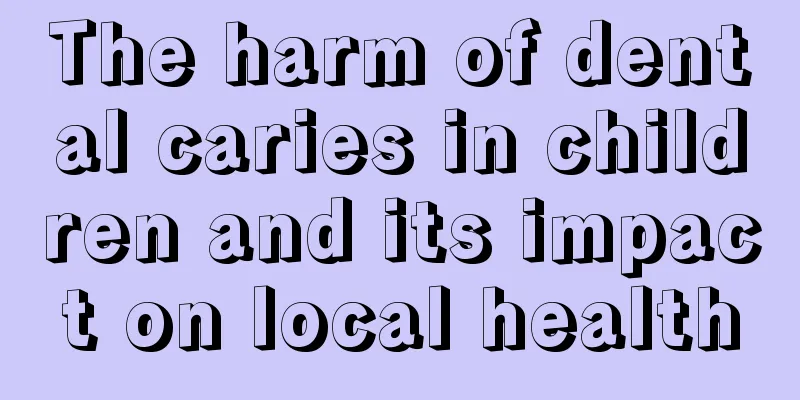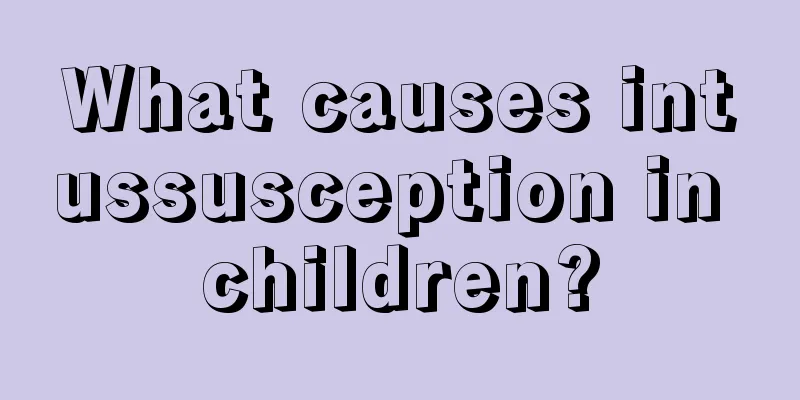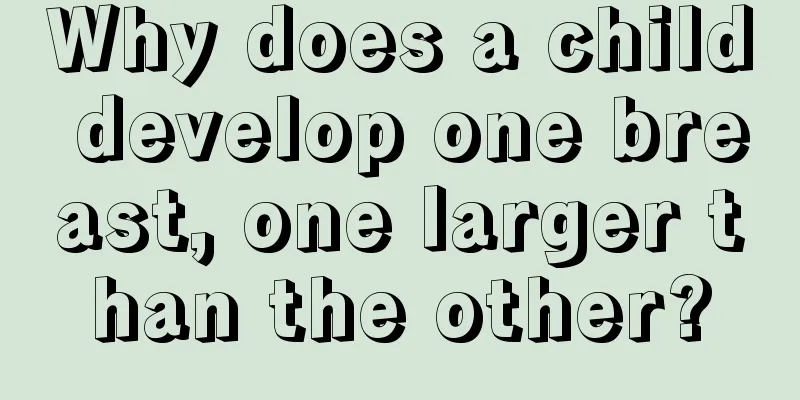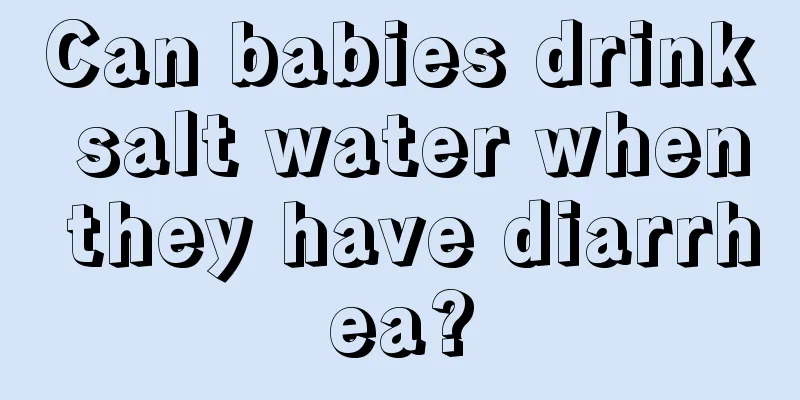The harm of dental caries in children and its impact on local health

|
What we call dental caries refers to tooth decay and tooth decay, and this condition is most common in children. It is a disease caused by bacteria. If caries is not treated in time, it will lead to symptoms such as pulpitis and periodontitis. What are the other dangers of dental caries in children? Dental caries is the most common oral disease, and the main cause of this disease is the oral soil environment and bacteria. For example, children who often eat candy are prone to sticking candy on their teeth. Such long-term sticking can easily produce bacteria at a certain temperature, which can easily lead to tooth decay. What are the hazards of tooth decay in children? The hazards to overall health include: 1. Affect growth and development. Due to the pain of tooth decay and the early loss of deciduous teeth, the chewing function is reduced and the gastrointestinal digestion and absorption are weakened, resulting in malnutrition of the body and affecting growth and development. 2. Cause infectious diseases. When children's dental caries cause periapical infection, it often becomes an infection focus, causing systemic infection. Related diseases include decreased vision, arthritis, nephritis, myocarditis, long-term low fever, etc. 3. Root granulomas, cysts, and pulp infections caused by caries can become infection lesions. When the body's resistance is reduced due to excessive fatigue, colds, etc., it can induce nephritis, rheumatic fever, tonsillitis, impetigo, scarlet fever, sepsis, etc. Studies have shown that 81% of children with deep caries, residual roots, and tooth abscesses have local lymphadenopathy, especially the submandibular lymph nodes. After caries treatment, 70% of enlarged lymph nodes can disappear. 4. The oral temperature of children with caries is higher than that of normal children, the total white blood cell count in the blood is increased, the erythrocyte sedimentation rate is increased, the red blood cell count is decreased, the hemoglobin is low, and the total serum protein is changed. After tooth decay is treated, it returns to normal, but the total serum protein does not change much in the short term. Therefore, when a child has unexplained low fever, anemia, increased white blood cell count and increased erythrocyte sedimentation rate, it may be advisable to conduct an oral examination first. 5. Cause psychological barriers. Infancy is the period when children learn language, and complete deciduous teeth help children master correct pronunciation. Decayed and early loss of deciduous teeth can cause children to have unclear pronunciation. Severe caries in the deciduous front teeth area make some children shy to speak, which is very detrimental to the children's psychological development. The effects on local health are: 1. Cause facial asymmetry. The pain of tooth decay causes unilateral chewing habits, which over time leads to asymmetric facial development. 2. Malocclusion and poor development of permanent teeth. Dental caries causes premature loss of deciduous teeth, resulting in the displacement of adjacent teeth into the gap, causing a disordered occlusion and malocclusion of permanent teeth. If deciduous tooth caries are not treated in time, it can also cause poor development of permanent teeth. 3. Maxillofacial deformities. The deciduous dentition is the chewing organ of children. The stimulation of chewing function can promote the normal development of the jaw. Without this normal physiological stimulation, the normal development of the jaw is affected, which may cause varying degrees of maxillofacial deformities. 4. Secondary to other dental diseases. Dental caries can develop into pulpitis, periapical inflammation, odontogenic cysts or interstitial infection. Apical periodontitis of deciduous teeth can also spread to permanent teeth, resulting in incomplete development of the hard tissue of permanent teeth and the formation of so-called Tenet's teeth. 5. Other factors may affect children's development, cause picky eating and loss of appetite, etc. 6. Encourage bad oral habits. Children often stop using the tooth on the decayed side because of the pain when chewing food, and only chew on the healthy side. Over time, this leads to partiality. Chewing habits. The mandible on the unused side lacks functional stimulation, the jaw is underdeveloped, and the face is asymmetrical, with the healthy side larger and the unused side smaller. The harm of dental caries in children makes us understand that dental caries can not only harm the health of children's teeth, but also cause problems in children's growth, development and mental health. To prevent tooth decay, you should be careful not to let your children eat too much sugar, develop good habits of brushing teeth, and not eat irritating foods. Pay special attention to not eating before going to bed. |
<<: Diet and health: Children have many troubles sleeping
Recommend
Surgery steps for neonatal skull depression
The newborn's skull is sunken, which worries ...
What are the symptoms of sepsis in children?
Sepsis is mainly caused by some pathogens invadin...
What should a two-year-old baby eat if he has a bad stomach?
If a two-year-old baby has a bad stomach, it is r...
Knowledge about neonatal congenital heart disease screening
We may have seen many children with congenital he...
How to deal with children's dark eye bags
During the growth process of children, parents ne...
What is the best age for children to have their teeth corrected?
Teeth are a very important organ for the human bo...
What are the dietary treatments for bronchitis in children?
Bronchitis in children is a common disease in lif...
What disease causes black spots on the white of a child’s eyes?
As we all know, the eyeball is made up of black a...
How to judge the recurrence of Kawasaki disease
Kawasaki disease is a childhood disease that affe...
What are the stool forms of infants at a few months old?
After birth, many babies consume breast milk and ...
How to effectively treat amblyopia in children
Having a pair of bright big eyes is the dream of ...
What should I do if my child has a cough for half a year?
In life, people will encounter some difficult dis...
What are the advantages and disadvantages of minimally invasive surgery for pediatric hernia?
Many people are familiar with pediatric hernia, w...
What are the causes of congenital cerebral palsy in children?
Congenital cerebral palsy is a common disease in ...
What to eat for children's weight loss diet
Everyone's life is getting better and better....









